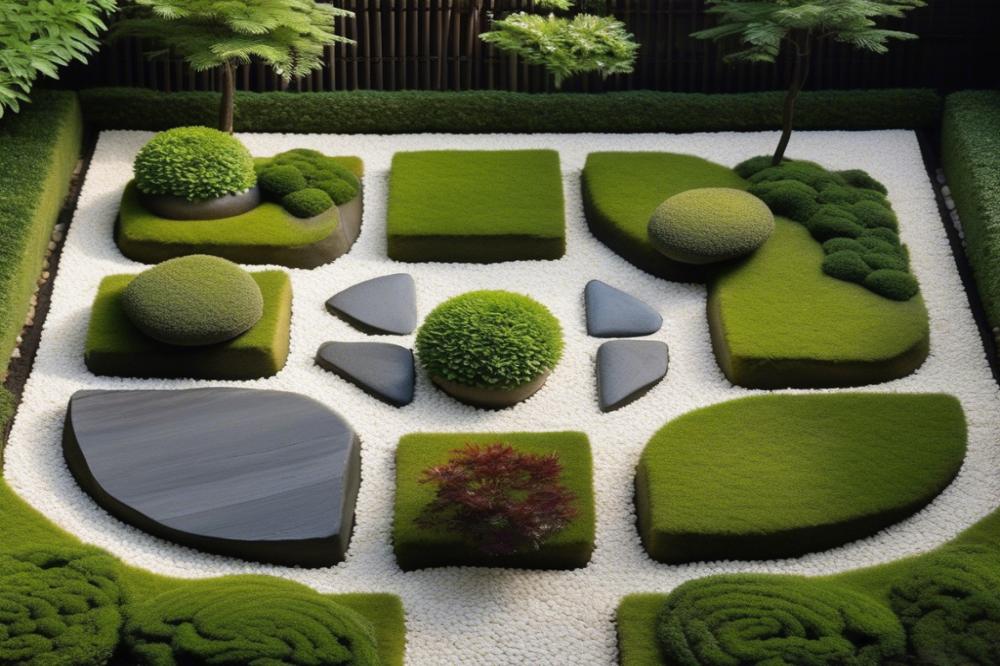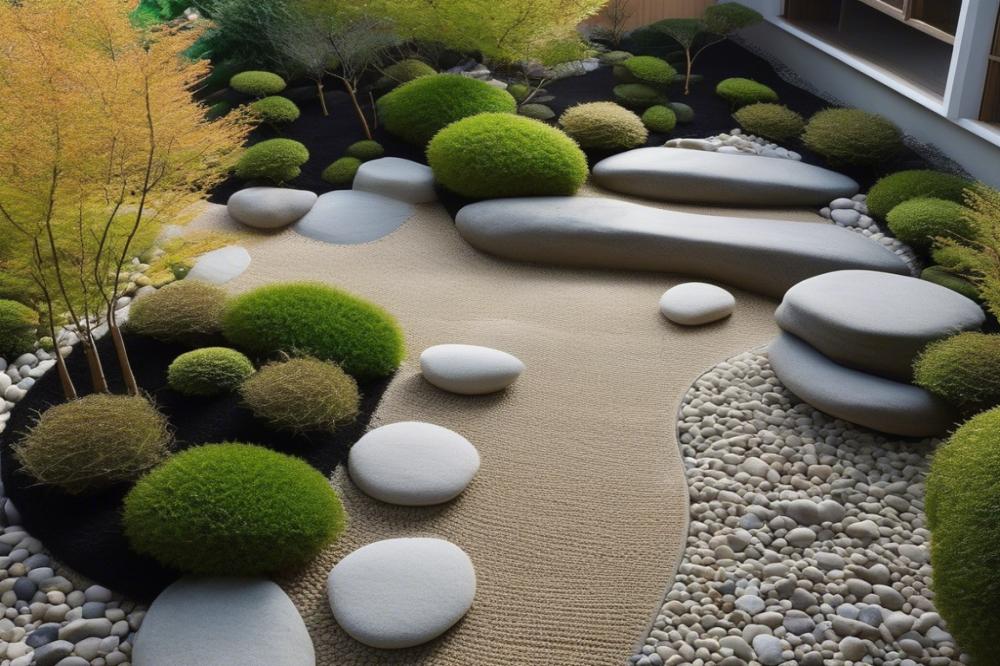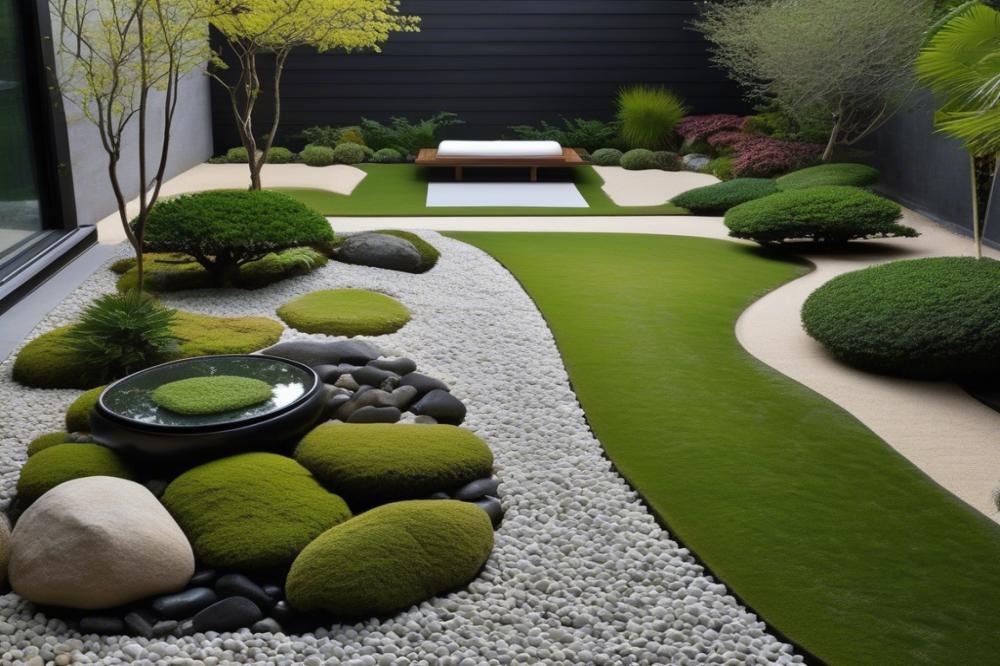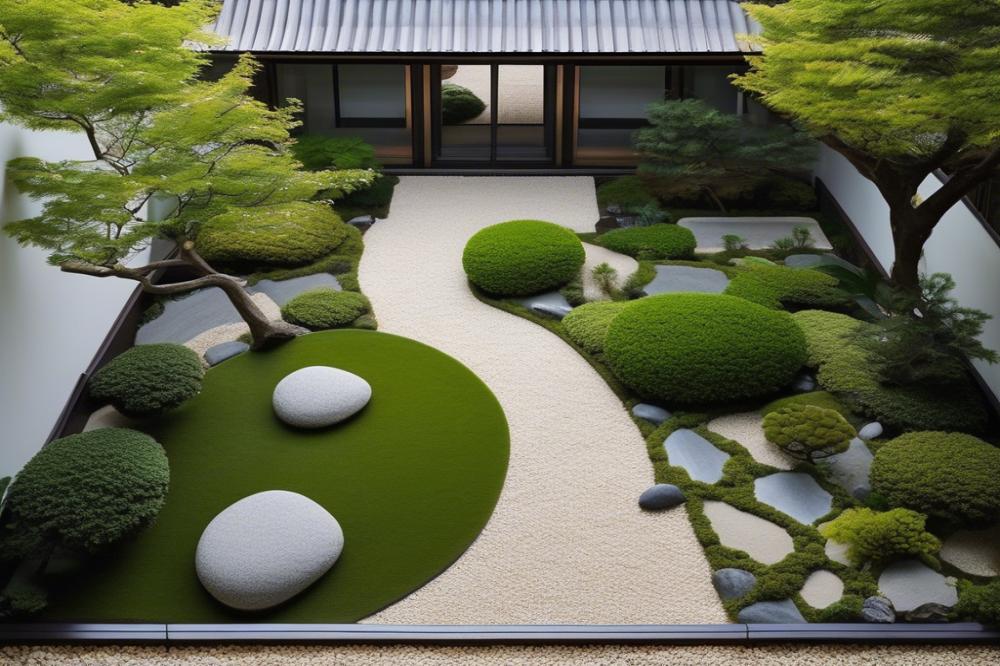The Role of minimalism in Zen gardens
Defining minimalism in the context of Zen gardens reveals a philosophy centered on simplicity and clarity. This design approach emphasizes the beauty of having less while appreciating the elements that remain. Zen gardens often consist of carefully chosen stones, raked gravel, and sparse vegetation, creating an escape from the busy world.
Japanese and Zen gardens hold deep cultural significance. They are not just a collection of plants and stones; they represent a spiritual pathway to peace and reflection. Each element is intentionally placed to evoke a sense of balance and harmony with nature. These gardens invite people to slow down, breathe deeply, and reflect.
simplicity plays a critical role in garden design. Every feature serves a purpose and contributes to an overall feeling of tranquility. In these spaces, meditation can flourish. One finds a peaceful setting to escape daily stressors. Rather than overwhelming the senses, the minimalistic layout invites a special kind of contemplation. The raked gravel symbolizes water, reminding us of nature’s beauty. The stones add a textural contrast, creating an aesthetic that both soothes and inspires.
In these gardens, the absence of excess encourages mindfulness. With careful landscaping, the beauty of nature shines through. This focus is not merely for looks; it speaks to a deeper spirituality. A visit offers a chance to take a break from life’s chaos and find inner peace. Recognizing the purpose of minimalism helps us understand how Zen gardens can impact our lives positively.
The Essence of Minimalism in Zen Gardens


Minimalism, at its core, embodies simplicity. It strips away the unnecessary, allowing what truly matters to shine through. This concept deeply influences Zen philosophy. Zen teaches that clarity comes from letting go of distractions. In a world often filled with noise, minimalism offers a peaceful escape.
Focus and mindfulness grow naturally from simple designs. A Zen garden’s raked gravel invites deep contemplation. When surrounded by such calm, one can meditate easily. The clean lines of stones and the gentle curves of the gravel help quiet the mind. Here, distractions fade, and tranquility takes center stage.
The aesthetic appeal of Zen gardens cannot be overlooked. Each element is chosen with care. Rocks and raked patterns create a harmonious landscape that pleases the eye. Beauty arises from the careful arrangement of simple materials. Every space speaks to the viewer’s spirit, inviting reflection on nature and life.
At first glance, one might assume these gardens lack complexity. However, the true artistry lies in their restraint. Subtlety captures attention, while extravagant designs often miss the mark. The balance of elements leads to a greater understanding of the world around us. Therefore, minimalist design enhances our connection to the spirituality inherent in nature.
Take a moment to appreciate how these gardens engage the senses. Cool stones underfoot contrast with soft gravel. The gentle sound of raked patterns evokes a sense of harmony. Such experiences encourage deeper thoughts and elevate personal reflection.
A Zen garden ultimately becomes a canvas for meditation. Every visitor interprets its charm uniquely. It invites personal connections and encourages individuals to seek clarity within themselves. In this way, it fulfills both the need for beauty and the desire for inner peace.
Design Elements of Zen Gardens


Zen gardens are remarkable for their distinctive design features. Key elements include stones, raked gravel, and carefully chosen plants. Each one plays a role in creating a serene atmosphere. Stones often symbolize mountains or islands. They bring a sense of permanence and stability to the landscape. Raked gravel represents water and offers a smooth, soft surface. This element not only serves a practical purpose but also invites contemplation.
Negative space is crucial in landscaping. It allows the eye to rest and promotes an experience of calm. By leaving open areas, a gardener emphasizes the importance of simplicity. Each item in the garden tells a story, contributing to a holistic view of nature and spirituality. The absence of clutter supports meditation and inner peace. Everyone can benefit from such tranquility, especially in today’s busy world.
The choice of colors and textures is essential too. Soft, muted shades evoke feelings of serenity. Earthy tones blend beautifully with the natural environment. Different textures, from the roughness of stones to the smoothness of raked gravel, create an aesthetic that captivates the senses. This variety can enhance the overall experience, allowing individuals to connect with their surroundings on a deeper level. Colors and textures help guide the mind towards relaxation.
Spirituality and Meditation in Zen Gardens


Minimalism plays a vital role in connecting us with spiritual practices. It strips away distractions. In its essence, simplicity allows individuals to focus on what truly matters. Zen gardens beautifully illustrate this concept. Through their careful design, they promote tranquility and peace.
Many people use Zen gardens as a space for meditation and mindfulness. The gentle sound of raked gravel creates a calming atmosphere. Stones placed thoughtfully throughout the landscape provide focal points for reflection. This setting encourages a slower pace, helping visitors disengage from the chaos of daily life. With every rake, a moment of mindfulness emerges.
Each element in a Zen garden is chosen with purpose. The minimalistic aesthetic enables a deeper connection with nature. Nothing feels cluttered or overwhelming. Instead, the design fosters a sense of contemplation. Serenity washes over those who take the time to sit and reflect. Visitors often find insights about their lives while surrounded by these peaceful landscapes.
Mindfulness is best cultivated in an environment that supports it. The simplicity of rocks and gravel invites quiet thought. Visitors often find themselves drawn to the textures and patterns created by raking the gravel. Each line carved into the surface promotes a meditative state. This practice nurtures inner calm and self-discovery.
In conclusion, the interplay of spirituality and landscaping in Zen gardens offers a unique path for personal growth. The tranquil settings encourage deeper reflection, while their careful design creates a harmonious space. It’s no wonder many seek refuge in these gardens. They serve not just as art, but as spaces for quiet connection with oneself and nature.
The Aesthetic Experience of Minimalism


In garden design, the visual impact of simplicity is powerful. A Zen garden often features carefully placed stones and meticulously raked gravel. This clean look invites the viewer to engage deeply with the landscape. Each element serves a purpose and draws attention to the whole. When looking at these spaces, one can feel a direct connection to nature. It’s hard not to appreciate how the arrangement creates a sense of calm.
The sensory experience in these beautifully designed gardens is enhanced by their simplicity. Fewer distractions allow visitors to focus on the details. The feel of the cool stones underfoot or the soft rustling of leaves becomes more pronounced. In this quiet setting, meditation becomes easier. One can breathe in the tranquility and let go of stress. Sounds of nature, like birds or wind, harmonize flawlessly with the garden’s layout.
Moreover, the minimalist aesthetics contribute significantly to emotional well-being. By stripping away unnecessary clutter, individuals often find a clearer mind. Spaces become sanctuaries for reflection and spirituality. A well-designed Zen garden invites peace and solace. One can pause, reflect, and gain a fresh perspective on life. Ultimately, these serene environments encourage inner balance, making them worthwhile experiences.
Creating Your Own Zen Garden: Minimalism in Practice
Designing your own Zen garden can be a fulfilling journey into simplicity and tranquility. Begin with a clear vision of the space you want to create. Consider the natural elements available to you. Rocks, sand, and plants can create a harmonious environment. Using a limited number of materials will help you focus on their beauty.
Mindful landscaping choices are essential. Every stone and grain of raked gravel should serve a purpose. Pick elements that resonate with you spiritually. The goal is to create a space that encourages meditation and reflection. This can lead to inner peace and clarity.
Incorporate specific elements into your garden design to enhance its calming effect. Large stones can symbolize stability and permanence. Arrange them thoughtfully within the layout. The placement of smaller pebbles can guide the eye and mind, promoting a sense of movement and flow. Another element to consider is a simple water feature. Trickling water provides soothing sounds, further deepening the tranquil atmosphere.
Avoid clutter when designing your space. Less is often more in the context of a Zen garden. Choose low-maintenance plants that embody simplicity. Think about delicate moss or sparse bamboo. These can bring a touch of nature without overwhelming the senses. Raked gravel can serve as a canvas, providing a beautiful, minimalist foundation.
Design choices should reflect your personality. When each element feels authentic, the space becomes more impactful. A Zen garden can be a unique sanctuary that inspires calm in your daily life. Approach this project with patience. Your garden will evolve over time, just like your journey into mindfulness.
Embracing Serenity through Simplicity
Zen gardens demonstrate the power of simplicity in fostering a peaceful state of mind. Each carefully placed stone or raked line of sand serves a purpose beyond mere aesthetics. The art of creating these spaces emphasizes the importance of less, allowing the mind to rest and reflect. Stripped of distractions, these gardens invite contemplation. They remind us how essential it is to create areas that nurture our soul.
Moreover, spaces designed with intention can lead to a deeper sense of tranquility. Walking through a Zen garden, one can feel the weight of the world lift. Each element contributes to an atmosphere that promotes serenity and introspection. It encourages silence and pauses, essential for self-discovery and personal growth. Finding peace in the clutter of daily life becomes much easier when we embrace environments that speak to our need for clarity.
For those looking to bring such calm into their lives, consider adopting a similar approach in personal spaces. Simplifying surroundings allows for a clearer mind and heart. Stripped-down aesthetics offer a path to balance. Whether it’s a small nook or your entire home, incorporating elements of minimalism can make a profound difference. Allow your environment to breathe, and you may find yourself more at ease. Thus, let us take inspiration from Zen gardens and create our own unique sanctuaries of peace.



